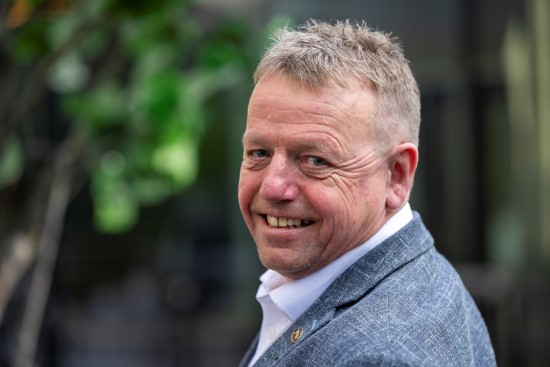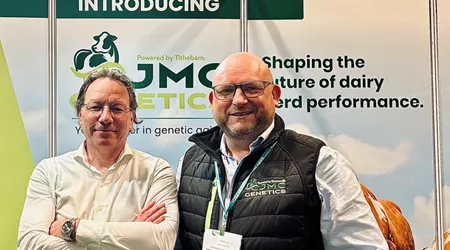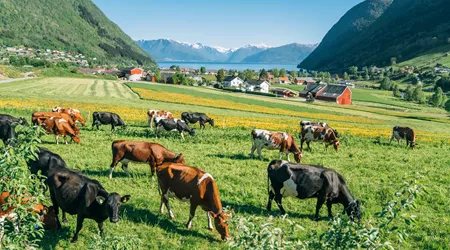By: Per Inge Egeland, Chairman of Norsvin, and Vegard Smenes, Chairman of Geno
Norway has long been recognised for producing clean, safe, and sustainable food. This strong foundation gives the country a unique position globally, and a responsibility. Our vision is clear: Norwegian livestock production should be a world leader in sustainable food systems. As global demand grows for sustainably produced raw materials, the support of Norwegian authorities is more important than ever.
Building Sustainable Food Security for the Future
In an increasingly unpredictable world, ensuring food security and preparedness requires smarter use of our natural resources. Norway has the land, the expertise, and the high-quality animal genetics needed to increase food production in a responsible and climate-friendly way.
Efficient resource utilization must be a national priority. Maximising the use of all our land resources offers enormous potential for high levels of self-sufficiency. Grain production should be concentrated where conditions are best, while grassland areas must be fully utilised. Stable frameworks that support strong grain production remain essential.
Norwegian breeding organisations Geno and Norsvin have made feed and protein efficiency a key focus in their breeding programmes. As a result, Norwegian meat and dairy production is becoming increasingly climate-efficient and sustainable, based on the resources we have available.
Global Impact Through Sustainable Breeding
Breeding is a decisive tool in meeting future food production challenges, producing more on less land, lowering emissions, and adapting to a changing climate. Thanks to close collaboration between Norwegian farmers, Norsvin, and Geno, the animals bred in Norway are healthy, robust, and highly feed-efficient. This forms a strong foundation for sustainable production both domestically and internationally.
Norwegian livestock genetics already play a significant role worldwide:
- Norsvin’s pig genetics account for 16% of global pork production, or roughly 160 million pigs each year. This export generates over NOK 150 million annually for Norwegian research and breeding.
- Geno’s Norwegian Red genetics are exported to more than 20 countries, including the USA, Italy, and New Zealand, strengthening dairy production far beyond Norway’s borders.
Norwegian breeding progress also contributes directly to global sustainability. Annual improvements in Norsvin’s pig breeding alone save 370,000 tons of feed, free up 740,000 acres of land, and reduce emissions by 600,000 tons of CO₂-equivalents.
At the same time, Geno is developing even more feed-efficient cows capable of thriving on local grass resources. This work supports one of the critical goals of global agriculture: producing more food using fewer resources. In this context, the cow becomes part of the solution for the future, in Norway and around the world.
Continued progress requires long-term investment in research, innovation, and access to advancing biotechnology tools under regulations that ensure responsible use for the benefit of society. Expanding market access for Norwegian livestock genetics is also key to strengthening sustainable global food production.
Healthy Animals at the Core of Sustainability
Norwegian livestock have one of the world’s best health statuses. This is the result of decades of long-term thinking, with farmers and breeding organisations prioritising health traits and broad breeding goals.
Healthy animals mean:
- Better welfare
- Improved food safety
- Lower greenhouse gas emissions
- Minimal need for antibiotics
- Reduced antimicrobial resistance
The links between animal health, plant health, and human health are strong. Norway’s proactive efforts to control antibiotic-resistant bacteria, such as MRSA in pig herds, demonstrate how livestock health directly benefits public health.
To protect this unique position, authorities must have sufficient resources for surveillance, prevention, disease control, and emergency preparedness.
Strengthening Profitability and Competitiveness
Years of targeted breeding and increasingly professional farmers have made Norwegian livestock production highly efficient. But in a high-cost country like Norway, strong framework conditions and profitability are essential to secure recruitment, encourage investment, and maintain Norway’s world-class breeding programmes.
Livestock production requires substantial capital, and increased access to investment funds is needed to support sustainable food production. As new production requirements are introduced, they must be matched with financial support to keep Norwegian milk and meat competitive against imports.
Public investment in renewing and upgrading farm buildings will strengthen competitiveness, secure future recruitment, and improve animal welfare.

Vegard Smenes, Chairman of Geno SA. Photo: Peter Reppen-Gjelseth.




